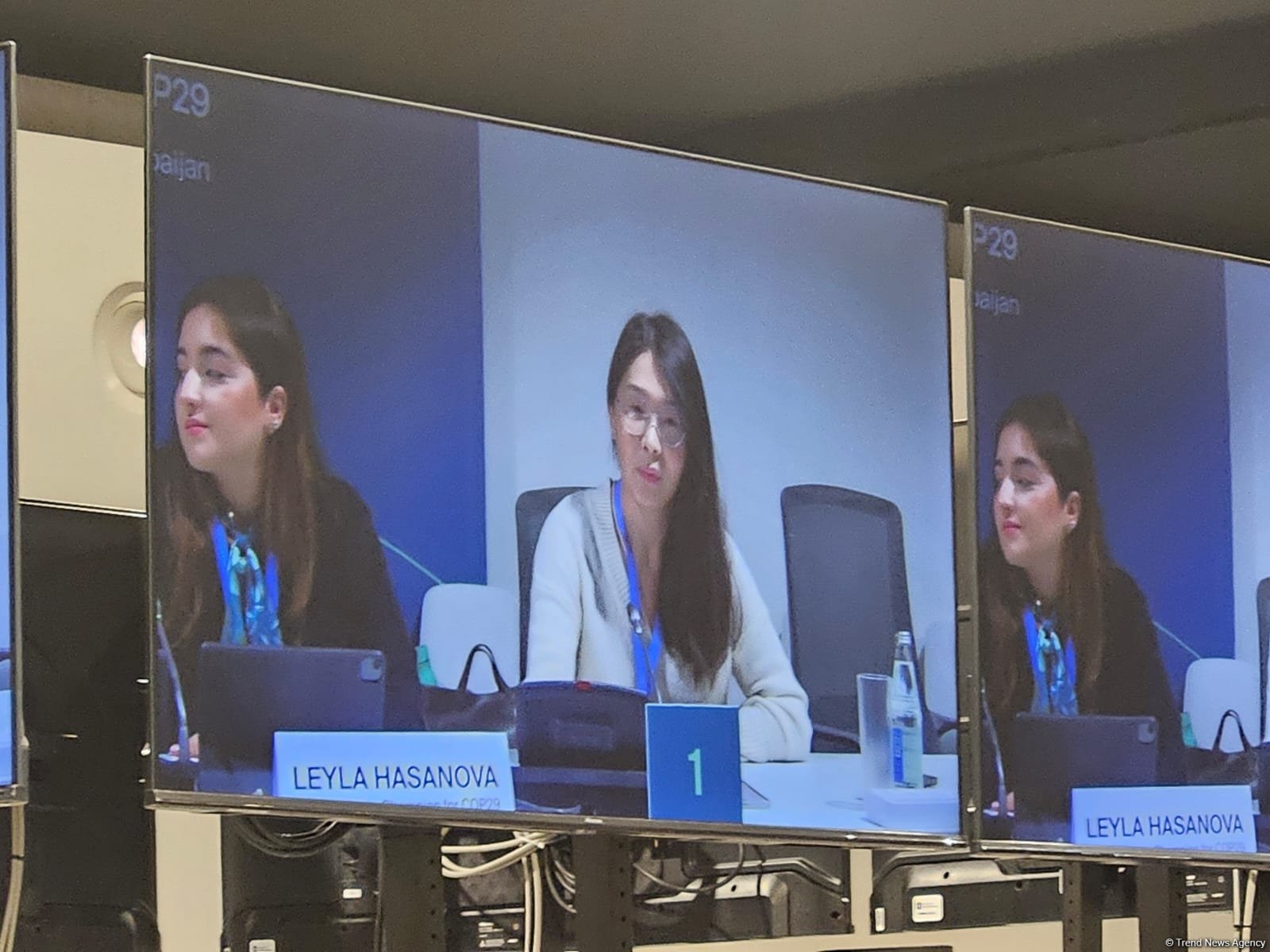BAKU, Azerbaijan, November 16. Support of civil society is important for overcoming climate challenges, the leader of a youth climate NGO from Kazakhstan, Dana Shukirbayeva said at an event on “Strengthening Climate Resilience and Sustainable Development in Landlocked Developing Countries (LLDCs): Challenges and Opportunities,” Trend reports.
According to her, civil society plays a key role in addressing climate change as it represents an important bridge between local realities and broader solution frameworks.
“Civil society is a harbinger of the changes needed to tackle the climate crisis. It amplifies the voices of those most affected by climate change and mobilizes innovative and inclusive action,” she said.
Shukirbayeva also noted that young people are actively engaged in addressing climate challenges by developing innovative digital tools and creating locally customized solutions, such as micro-renewables or artificial intelligence-based platforms. However, in order to expand this movement, it is important to ensure that civil society in landlocked countries is recognized and supported.
“The first step towards this is to simplify access to climate finance. Often complex bureaucratic processes leave initiatives coming from youth movements unattended. Second, we need to create platforms to share and scale local innovations that are already helping to achieve food sustainability. And finally, partnerships are needed - between governments, the private sector, and civil society," she stressed.
She emphasized the importance of partnerships and collaboration between different sectors to achieve climate resilience. There is great potential for cooperation between youth organizations of the countries.
To note, the 29th session of the Conference of the Parties to the UN Framework Convention on Climate Change (COP29), which will run until November 22, opened at the Baku Olympic Stadium on November 11. It is the largest event organized by Azerbaijan to date, and the first time in the region that it is being held in Azerbaijan.
Within COP29, the highest level event - the summit of world leaders on climate action – was held on November 12–13.
The main expectation from COP29 is to agree on a fair and ambitious New Collective Quantitative Goal (NCQG) on climate finance. The COP29 chairmanship has launched 14 initiatives that include linkages between climate action and the Sustainable Development Goals, including green energy corridors, green energy storage, harmony for climate resilience, clean hydrogen, methane reduction in organic waste, action on green digital technologies, and other topics.
In addition to being a top priority that creates the conditions for action, creating climate finance will also help fulfill the 1.5°C pledge by bringing everyone together.
The UN Framework Convention on Climate Change is an agreement signed at the Rio Earth Summit in June 1992 to prevent dangerous human interference in the climate system. The acronym COP (Conference of Parties) stands for “Conference of Parties” and is the highest legislative body overseeing the implementation of the Framework Convention on Climate Change.
A total of 198 countries are parties to the Convention. Unless otherwise decided by the parties, COP is held annually. The first COP event was held in March 1995 in Berlin, and its secretariat is located in Bonn.
Stay up-to-date with more news on Trend News Agency's WhatsApp channel







